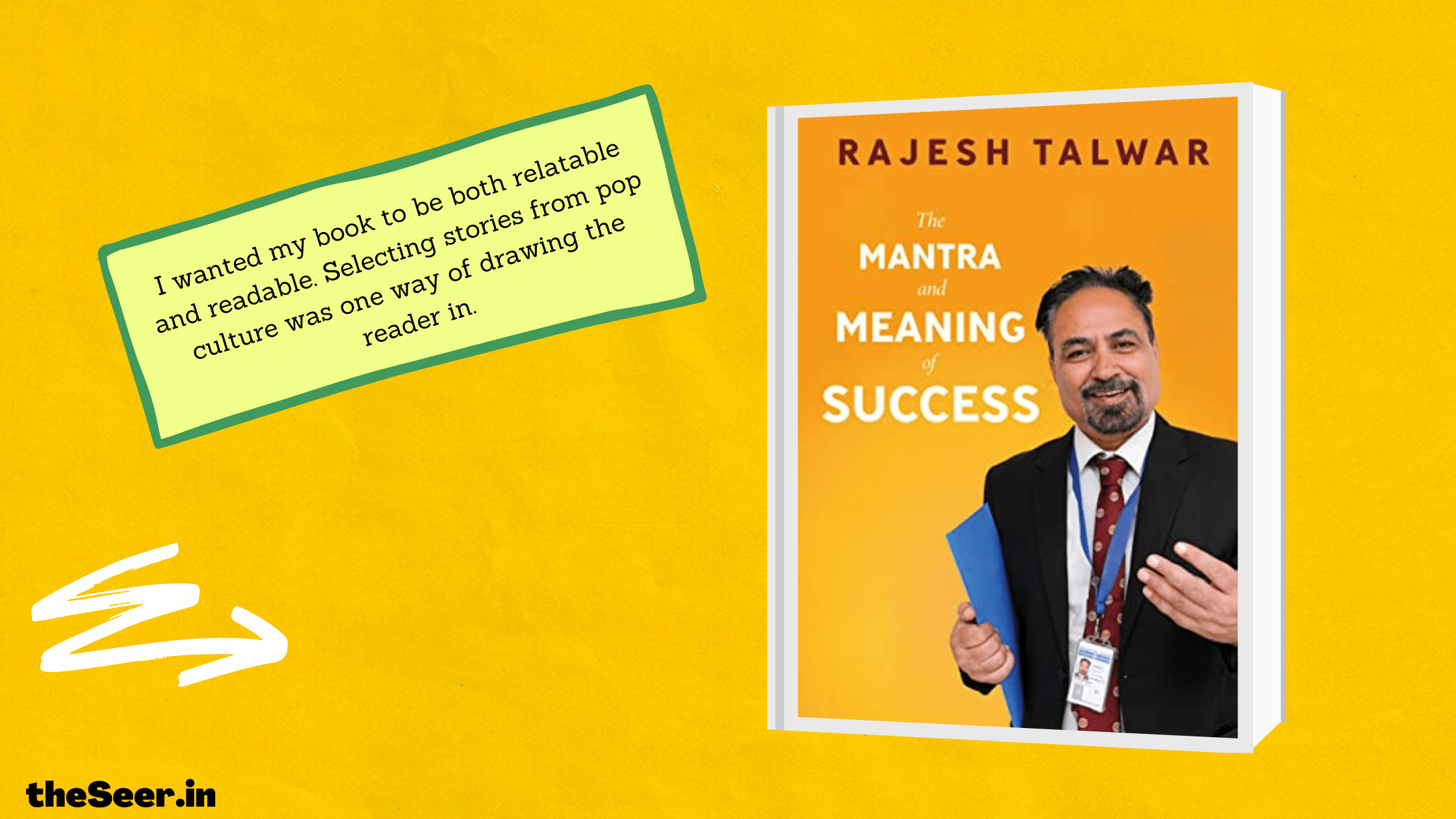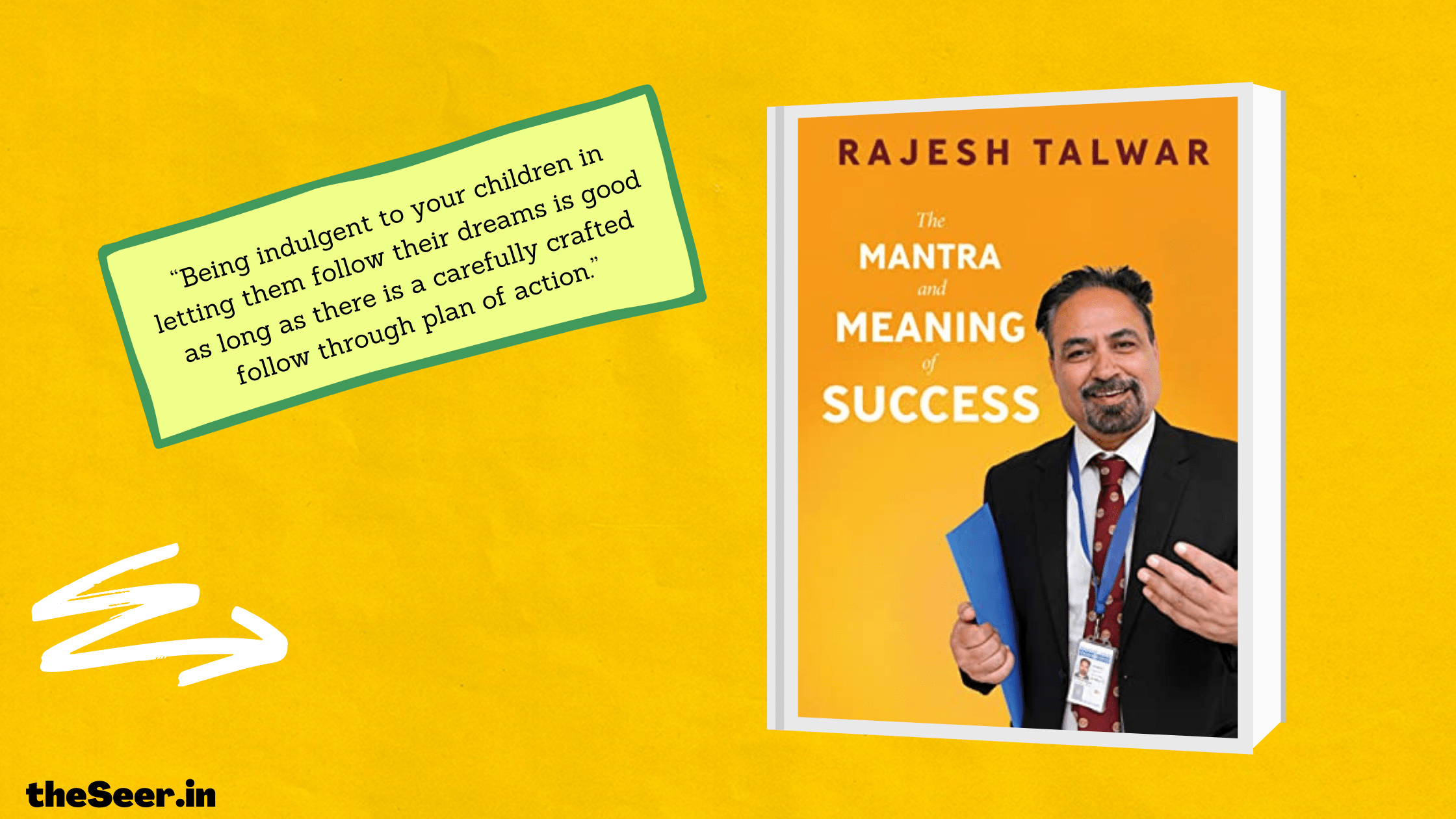Rajesh Talwar has written thirty-two books, which include novels, children’s books, plays, self-help books and non-fiction books covering issues in social justice, culture and law. He has practiced law, taught at university, and also worked in senior positions with the United Nations in various countries across three different continents in a career spanning two decades. He is a British Chevening scholar and the recipient of an Honorary Citizenship Certificate from the Mayor of Tulsa (Oklahoma). He has been interviewed by The New York Times on the state of law and justice in India. He has studied for shorter and longer durations at various universities including Delhi University, Nottingham, Oxford, Cambridge and Harvard.
In many of his books he has tried to spread awareness about globally significant issues. For instance, in a children’s story book The Three Greens and a play The Killings in November he has written about environmental issues. He took up the cause of sexual minorities in his book The Third Sex and Human Rights and the play Inside Gayland. He has written about the dangers of a nuclear holocaust in his play A Nuclear Matricide. Crimes against women are discussed in his play The Bride Who Would Not Burn and his book Courting Injustice: The Nirbhaya Case and Its Aftermath.
Within the world of fiction, he has written in different styles and genres. His novel The Sentimental Terrorist is a literary novel that explores the theme of terrorism. On the other hand, An Afghan Winter also based in Afghanistan is written out like a thriller. Most recently Talwar has described his novel How to Kill a Billionaire as a literary thriller that reveals the workings of the Indian justice system. Rajesh works as Deputy Legal Adviser to the United Nations Assistance Mission in Afghanistan.
TheSeer recently spoke with the author and discussed his childhood, love for books, and his journey so far.
You have had a stellar career and your body of work is still expanding. Do you consider yourself successful?
As I write in my book, for anyone to consider himself successful there should be a merger of the objective and the subjective criteria. Take the case of the famous painter Vincent Van Gogh. Judging by today’s standards he is immensely successful, with each of his paintings being sold for millions of dollars, but while he lived and painted, he was unrecognised and a great failure. It was painful for him then, and it painful for his fans today when they think of how the artist suffered. I do therefore believe that you need a degree of public endorsement, that is to say, objective success in addition to subjective satisfaction.
Success cannot be purely subjective, as the singer and Nobel Laureate Bob Dylan suggests. When I think of myself, yes, I do consider myself successful. It would be ungrateful and falsely modest of me to state otherwise. I also believe that it would have been unfair to pen a book on the meaning and mantra of success if I did not myself have at least a certain level of success. Having said that, you know, for a true artist, which I imagine myself to be, perhaps misguidedly, all his works ultimately fall short of the perfection he aspires to. Rabindranath Tagore said very profoundly, and I believe with great honesty and insight, that although he had written thousands of poems, all his life he had been trying to write just a single poem which always remained elusive. Alas!
What was your childhood like?
I am from a fauji family, an ‘army brat’ so to speak. Dad being in the army, we were transferred every few years. This was both good and bad. It was good for me because I had a sort of mini-Bharat Darshan during my growing up years. There was a downside to it as well though for by the time you made friends at school, it was time to go to another town or city, and change schools. Although we didn’t have any writers in the family as such, I would not say that my family did not have a literary inclination. My mother, for instance, was and remains a great reader and she imbued in me and my two brothers, through very subtle influencing a passion to read. That habit continues till this day. We keep checking what each of us is reading and recommend books to each other. My father was not a great reader, but I believe he may have been reading quite a lot in his younger years, for every now and then at the dinner table he would surprise us with some Urdu shayari or an esoteric Persian couplet.
Why did you decide to write the book – The Mantra and Meaning of Success?
Unfortunately, I believe that very many self-improvement books are fake in nature, and prey on people’s insecurities. Most books on success do not even consider that success can mean different things for different people. They simply assume that everyone knows what success means. I wanted to write an honest book, which asked the reader what it was that he personally wanted out of life before going on to examine the route and methods to achieve success. So, I hope that my book will create some inner questioning in the reader, and there will be readers who will realise what it is that they really want, before chasing a success that may end up as a mirage and not mean much to them even after they attain it. The second thing is that most books on success, barring a few, are written from a Western perspective, giving Western examples. I wanted to write a book keeping the Indian audience at the centre, while it could remain useful to non-Indians as well.
When you define success, how much of it do you think is subjective in nature?
It is difficult to put a percentage on it, but I do agree with Dylan to the extent that the subjective element is possibly the more important. If what you really want to do in life is sing songs or write books, but you end up making soap and selling huge quantities of it, even if you end up as a billionaire, you will find great dissatisfaction gnawing away at you. Selling soaps was not what you were meant to do with your life. On the other hand, if you write books and get only a bit of recognition and little or no money, even if it gives you great creative satisfaction, without a sense of validation from the outside world, you could also end up feeling a great sense of frustration. In my book, I give the example of Mario Puzo who wrote a few critically acclaimed books with one even being described as a minor classic by The New York Times. However, after some years Mario started to feel unhappy at being in a situation where he was always having to be borrowing money from his brother. One day, he told himself: ‘Mario, you need to grow up and sell out!’ In other words, stop with the literary fiction and think mass market. That’s how eventually The Godfather was born.
You have chosen to focus on Fame, Money, and Power while defining success. Why?
Although I focus on fame, money and power, I explain how often when you attain success in one domain you start to thirst for success in another area. Smriti Irani was a famous actress but decided to leave the world of acting to enter politics. She had fame but she wanted something more enduring, let us say. Mr Kapil Sybil is a successful lawyer and politician but decided to write poetry, to gain a different kind of acclaim and popularity – unfortunately his experiment was far less successful than Ms Irani’s. I speak also of IAS officers who have enjoyed status, and a degree of power, but feel bad about not having enough money, compared to their friends in the corporate sector. But yes, fame, money and power are the three magnets that drive most people’s quest for success, and I felt it was logical to focus on them.
You have picked a lot of stories from the pop culture and information that is readily available in the public domain for your book. How did you come to select these stories while writing the book?
I wanted my book to be both relatable and readable. Selecting stories from pop culture was one way of drawing the reader in. The writing of this book had been an idea in my mind for many years, and certain stories concerning celebrities stuck in my mind. Writers do this – they tuck away something that could be useful in a corner of the mind. The other thing is that I believe wisdom can be found all around us. It’s not necessary to go to the top of a mountain in search of a white bearded man who will impart words of wisdom. Insights and lessons can be gleaned from the lives of many people.
What are your current reads? Who are some of your favourite writers?
I am currently reading three books. I have with me ‘Bastar Dispatches: A Passage Through the Wilds,’ written by Narendra, a friend, which I never found time to read earlier, but which I am now thoroughly enjoying. Narendra actually spent many years living with tribals in Abujhamad and it is great to read about his experiences and what he learnt from living there. The second book was released this year on International Women’s Day by Deepti Mehrotra titled ‘Her-Stories: Indian Women Down the Ages’. Finally, I have just started reading Gitanjali Shree’s ‘Tomb of Sand’. Perhaps it will inspire me to write my own novel on Partition for there are many painful memories within my own family of what is often referred to as the greatest migration in human history. Our family came from Pakistan in 1947. My mother hailed from Bhaun, and father from Chakwal, both small villages in District Jhelum (at the time) that were fairly close to each other.
My favourite writers? Let me just mention a few at the very top of the list. Among the French, I love Guy de Maupassant and Marcel Proust and among the Russians I love Dostoevsky, Turgenev and Anton Chekov. I also love Oscar Wilde, Rabindranath Tagore, Manto, James Hadley Chase and Shakespeare.
What’s the next book about?
I like to stretch myself as a writer. Although I have written very many books in multiple genres, including non-fiction, novels, plays and children’s stories, I still don’t have a collection of short stories to my credit, which I hope to remedy next year. Moving in that direction the next book is a collection of two novellas, which I look forward to eventually being reviewed by The Seer and other magazines and newspapers. The first novella is titled How I Became a Taliban Assassin which is based on my time spent in Afghanistan working for the United Nations. The second one is titled The Murder that Wasn’t which is partially based on my time spent in the courts before I joined the United Nations. Both novellas speak of injustice in the world, and in both novellas innocent people die, so there are common themes that justified bringing them together in a collection. The book should be out in early October, which is hardly a few weeks away. Right now the cover is in the process of being finalised and I am very excited about this imminent publication.
Like what you just read? Become TheSeer Insider. You will be receiving a letter from us once in a while to help you live a more mindful life. Enter your email id below and click on subscribe. We won’t spam you, ever!


